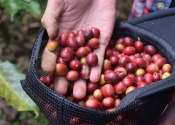Poverty is the state of one who lacks a certain amount of material possessions or money. Absolute poverty or destitution is inability to afford basic human needs, which commonly includes clean and fresh water, nutrition, health care, education, clothing and shelter. About 1.7 billion people are estimated to live in absolute poverty today. Relative poverty refers to lacking a usual or socially acceptable level of resources or income as compared with others within a society or country.
For most of history poverty had been mostly accepted as inevitable as traditional modes of production were insufficient to give an entire population a comfortable standard of living. After the industrial revolution, mass production in factories made wealth increasingly more inexpensive and accessible. Of more importance is the modernization of agriculture, such as fertilizers, in order to provide enough yield to feed the population.
The supply of basic needs can be restricted by constraints on government services such as corruption, debt and loan conditionalities and by the brain drain of health care and educational professionals. Strategies of increasing income to make basic needs more affordable typically include welfare, accommodating business regulations and providing financial services. Today, poverty reduction is a major goal and issue for many international organizations such as the United Nations and the World Bank.









